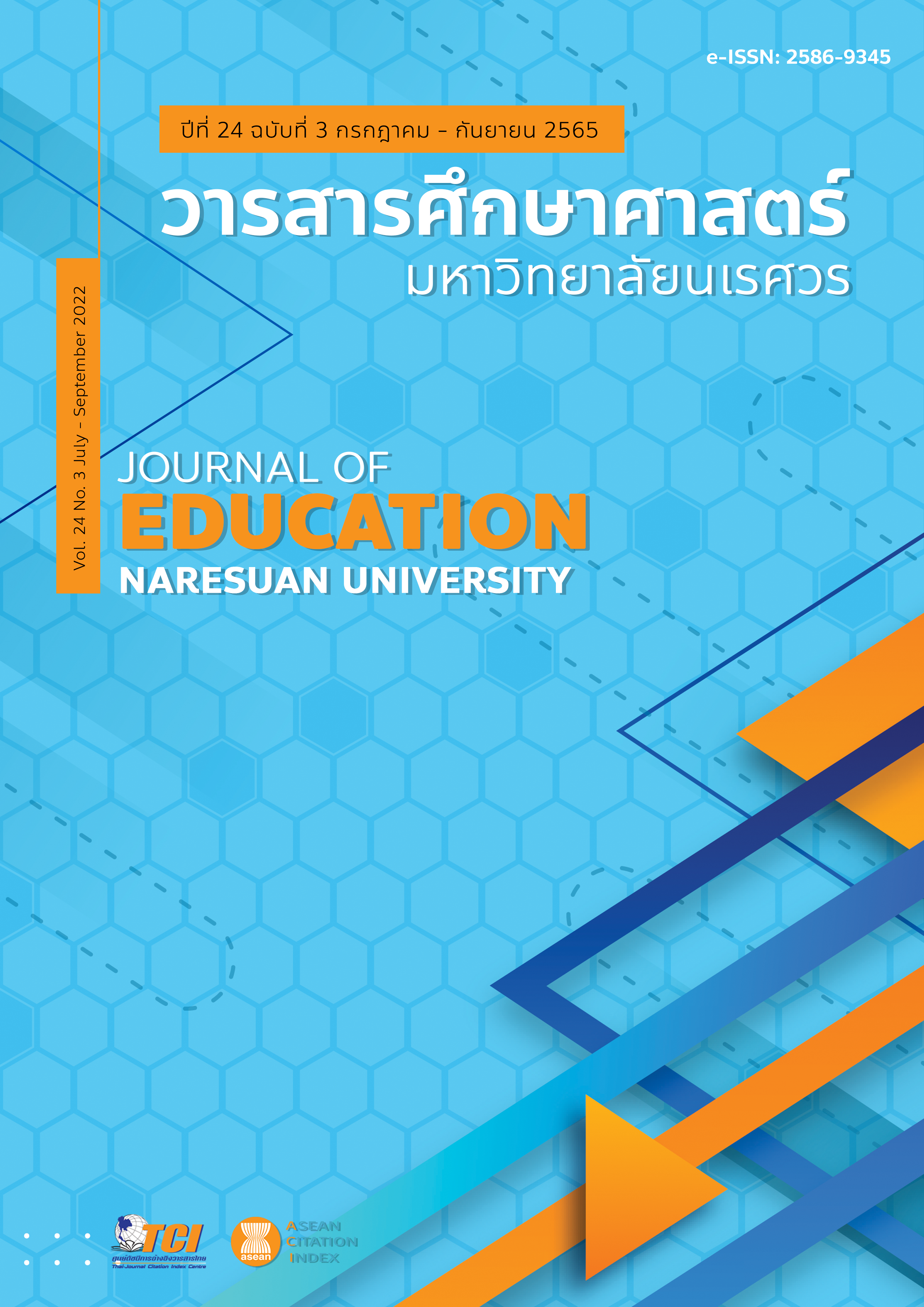ONLINE LEARNING WITH GOOGLE AND MICROSOFT FAMILY OF APPLICATIONS การจัดการเรียนการสอนออนไลน์ด้วยแอปพลิเคชันตระกูล Google และ Microsoft
Main Article Content
Abstract
This article has intended to present the application and guidelines for online learning activities based on the author's real experience with Google and Microsoft family of applications in line with the promotion of teaching and learning management four competencies. It consists of designing and planning effective learning activities for learners, efficient implementation of learning activities, enhancing learning atmosphere and supporting learners' learning, measuring and evaluating learners' learning outcomes along with providing creative feedback to learners. It has been found that there are thirty-four applications from both families that can be used as the primary and supplementary applications for online teaching and learning. Teachers have chosen to apply for efficient online teaching and learning.
Article Details

This work is licensed under a Creative Commons Attribution-NonCommercial-NoDerivatives 4.0 International License.
The owner of the article does not copy or violate any of its copyright. If any copyright infringement occurs or prosecution, in any case, the Editorial Board is not involved in all the rights to the owner of the article to be performed.
References
Admissionpremium. (2017). What is Mobile application? Retrieved April 2020 from
https://www.admissionpremium.com/it/news/1852 [in Thai]
Bureau of Higher Education Standards and Evaluation. (2018). Guidelines for promoting the quality of learning in higher education institutions. Bangkok: Office of the Higher Education Commission. [in Thai]
Islam, S. (2019). Bangladeshi University student’s perception on using Google Classroom for teaching English. International Journal of Psycho-Educational Sciences, 8(2), 57-65.
Jitsupa, J. (2020). Concepts and principles of online teaching and learning. Project documentation training for developing vocational teacher skills in teaching and learning online. Bangkok: Office of the Vocational Education Commission. [in Thai]
Khalil, Z. (2018). EFL students’ perceptions towards using Google Docs and Google Classroom as online collaborative tools in learning grammar. Applied Linguistics Research Journal, 2(2), 33-48.
Khlaisang, J. (2012). e-Learning courseware: Concept into practice for e-learning at all levels. Bangkok: Chulalongkorn University Press. [in Thai]
Laohajaratsang, L. (2002). Designing e-Learning: Principles of designing and developing web-based learning. Bangkok: Aroon Printing. [in Thai]
Mindphp. (2018). What is Application? Retrieved April 2020 from https://www.mindphp.com [in Thai]
Nilsook, P., Wannapiroon, P., Jitsupa, J., & Chairak, S. (2020). Research report on the development of vocational teacher skills in online teaching and learning management. Bangkok: Ministry of Education. [in Thai]
Office of the Vocational Education Commission. (2020). Project of training for developing vocational teacher skills in online teaching and learning management. Bangkok: Ministry of Education. [in Thai]
Panich, W. (2012). Ways to create learning for students in the 21st century. Bangkok: Sodsri Saritwong Foundation. [in Thai]
Rattanapian, V. (2005). Leading web-based learning. Bangkok: Chulalongkorn University Press. [in Thai]
Saelee, S., & Linthaluek, S. (2020). Course guide teachers learning community network online instructional management. Bangkok: Office of the Vocational Education Commission. [in Thai]


